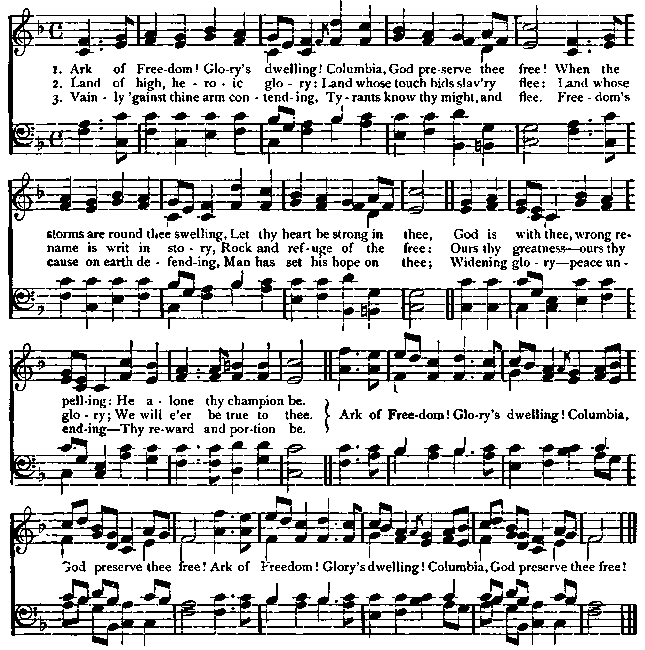Franklin Square Song Collection - online songbook
200 favorite songs and Hymns for Schools, Homes Lyrics & Sheet Music
| Share page | Visit Us On FB |
|
io4 |
FRANKLIN-SQUARE SONG COLLECTION. |
||||
|
Training.—The feeblest attempt in the smallest, most obscure Western village to advance true art has weight and influence, and is not lost though it seems too insignificant to be noted. If all were generals, we should have no army. The smallest drummer-boy at the farthest outpost of our civilization is an essential part of the whole, helping and advancing the good cause by his earnestness and fidelity, inspiring some faint, feeble heart to one more effort, passing on the good word of obedience, in the faith that ten times one is ten, till the tens are hundreds, the hundreds thousands, the thousands a multitude |
that no man can number. If even a feeble effort is of value, how much more valuable is a well-directed, intelligent effort of one who has been systematically trained, who sees the end from the beginning, and, sure of his ground, strengthened by sympathy and that sense of communion which is the very life of the soul, works intelligently for a definite end ! For this a thorough, careful training is needed—a training which, in its elementary condition, should pre cede any question of talent or special ability. 'W c do not ask children if they have a predilection for the alphabet or the multiplication table; it is their |
||||
|
COLUMBIA, GOD PRESERVE THEE FREE! |
Joseph Haydn. |
||||
 |
|||||
|
|
|||||
|
right; they are to have it whether they specially desire it or not. All will not become Newtons or Shakespeares; but without the preliminary training they have no possibility of appreciating either the one or the other. The receivers must outnumber givers in any one direction; there must be audience as well as orator. The better trained the audience, the better oratory will they demand and receive. As simple, as unquestioning, should be the first part of a child's musical education, till, unconsciously, the page of music is as expressive and intelligible to |
him as a page of printing, remembering always that to vocalize a scale is much easier than to learn the different sounds in the alphabet, a far simpler task to master in childhood than in maturer years. Vocal music, which at first is largely imitative, is the easiest method for very young children, who, experience proves, will learn good music much more readily than bad, and are swayed and influenced beyond computation by the sentiment of the hymns and songs learned at school and sung in unison, or by the sort of musical atmosphere in which they find themselves at home^ |
||||